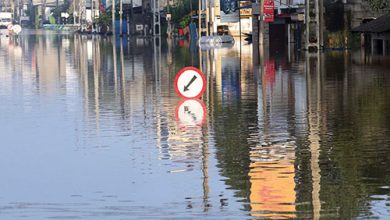SRI LANKANS OVERSEAS
PATH TO RECOVERY Dr. Udan Fernando Sri Lanka needs a consensus to lay a foundation of stability Q: How do you perceive Sri Lanka today? A: Sri Lanka has faced a plethora of crises – insurrections, a long civil war, political turmoil, floods, a tsunami and more. And now there’s another crisis, which is far more serious and challenging than the ones before. Nevertheless, in-between crises – or despite…

PATH TO RECOVERY
Dr. Udan Fernando
Sri Lanka needs a consensus to lay a foundation of stability
Q: How do you perceive Sri Lanka today?
A: Sri Lanka has faced a plethora of crises – insurrections, a long civil war, political turmoil, floods, a tsunami and more. And now there’s another crisis, which is far more serious and challenging than the ones before.
Nevertheless, in-between crises – or despite them – life goes on. Sri Lankans are resilient and have the capacity to cope and gradually overcome adversity. However, the deep structural causes are largely left unattended.
Q: Do you think Sri Lanka is capable of regaining its composure in the aftermath of multiple crises – including the most recent economic crisis?
A: The economy will require a great deal of effort and time to recover, and regain stability.
There is a political dimension to the crisis too. However, we tend to be obsessed with the political dimension at the cost of losing sight of the dire state of the economy, and priority that it demands.
The months from March to July last year were unprecedented as people protested against the shortages of food, fuel and other essentials, as well as the power crisis. And the protests eventually resulted in regime change.
People’s assertiveness is good but it has resulted in an unhealthy culture of agitation, sabotage, mob violence and intolerance. This situation is being exploited by some groups to gain political mileage. ‘Once bitten, never shy’ seems to be our motto.
Q: So what advice would you offer Sri Lankans in the context of crisis management and finding solutions to the problems they face?
A: The Sri Lankan diaspora has expertise, investments and remittances to offer, but the key decisions and master plan must originate in Sri Lanka.
Q: How do compatriots in your country of domicile view Sri Lanka?
A: The older generation nostalgically recalls how then Prime Minister Lee Kuan Yew considered Sri Lanka to be a benchmark for Singapore in the 1960s. But now they pity Sri Lanka.
Meanwhile, the younger generation doesn’t have any particular view on the country other than considering it a tourist destination.
And the business community, which was hopeful at different stages in the recent past, seems rather wary about doing anything right now.
Q: Likewise, how do other Sri Lankans living in Singapore view Sri Lanka?
A: The profile of Sri Lankans in Singapore is diverse. Most of them are domestic workers who are busy with their jobs and supporting their families back home.
Those with ICT and engineering backgrounds are on the rise. This is good as it changes our profile from unskilled to skilled. But their views on Sri Lanka are less discernible.
Q: What were your impressions of Sri Lanka during your last visit – and how much has it changed from the past?
A: I last visited in October last year and stayed for a week in Colombo. So my impressions can be rather limited. However, I found it surreal to observe the complete calm that had settled over the city after a spring of agitation only a few months before.
Q: How do you view the brain drain – and why is there still no reversal of it, in your opinion?
A: Globally, migration is a reality because people around the world leave for destinations where they can lead a better life. The process of migration is easier than before, provided one’s skills are in demand.
The current crisis in Sri Lanka is giving an extra push for people to migrate. Sri Lankans need to live with this reality and minimise serious skills gaps in critical sectors. As long as the skills for critical sectors are secured locally, migration as such isn’t a bad thing.
Q: What should Sri Lanka focus on most in the coming decade?
A: Sri Lanka should focus on recovery and laying a foundation for stability, as well as developing a minimal level of political consensus among parties.
Q: And what are your hopes for the country in the next decade or so?
A: A decade is a short period of time given the severity of the crisis. Therefore, expecting a transformation in a decade is unrealistic.
However, my hope is to see some degree of balance between our political idealism and economic realism as the foundation for a sustainable future.










